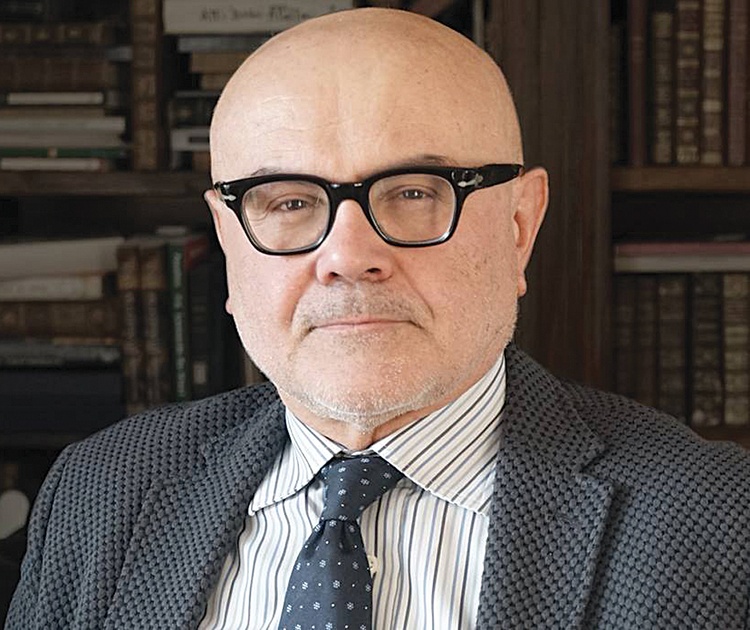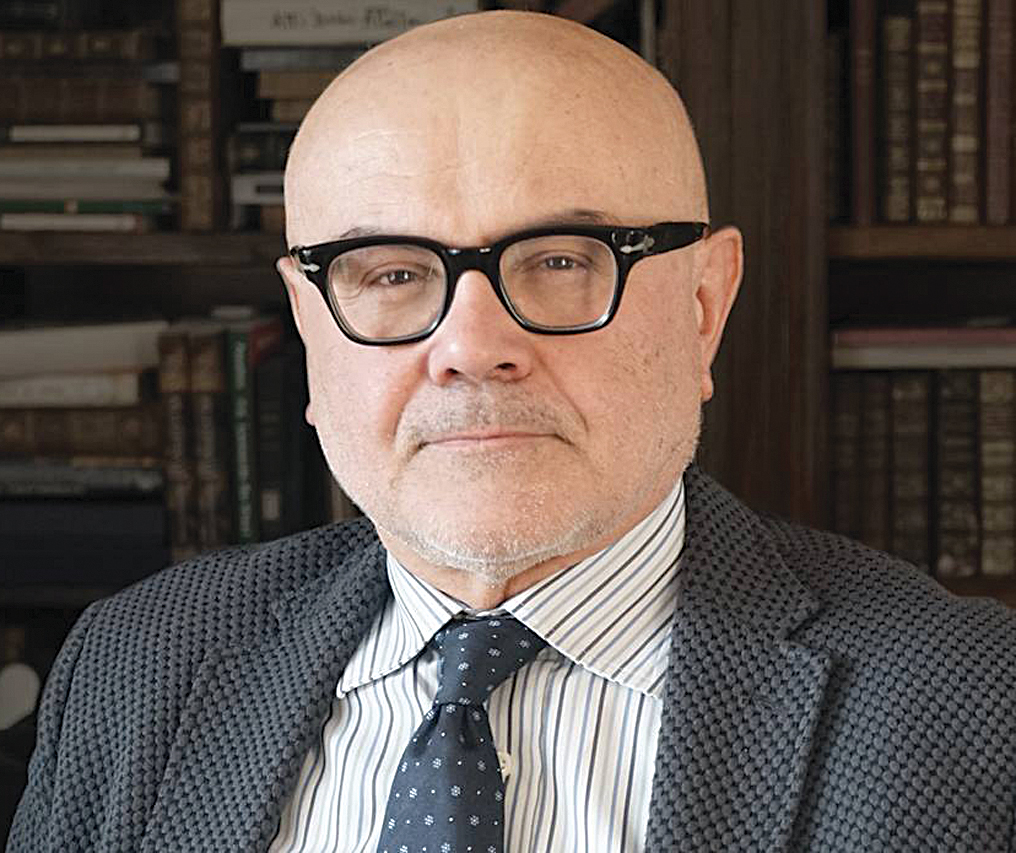At the same time, he identifies as “a history lover”, who has pursued this passion by writing several historical books.
As an intellectual, Mr Paratico possesses keen observation and reasoning skills which allow him to assess issues from different perspectives.
As a politician, he has the ability to listen.
Speaking with him, you can’t help but notice his calm demeanour and openness, something which effectively clashes with the political force he has always been linked to: the far-right Brothers of Italy party (FdI).
Then there are issues which, when touched on, confirm his alignment with the party.
One of these is immigration, which he describes as a “sprawling” phenomenon plaguing Italy.
“Our country can’t bear the arrival of all of these people, who are economic migrants and are not fleeing persecution,” he argues.
“Their search for a better life is understandable, but we Italians can’t take care of them on our own.”
The Dublin Regulation, which states that asylum procedures must be undertaken by the first country of entry, is a problem which should be addressed immediately, in Mr Paratico’s opinion.
However, it’s a problem the coalition to which he belongs accepted and ratified in 2003, under Silvio Berlusconi’s government.
Mr Paratico is quick to respond, “It’s true, but they were different times.”
“Today, this phenomenon must be strictly regulated, like in Australia,” he adds.
However, Australia’s evermore rigid regulations on immigration are forcing many young people, including Italians, to leave the country.
Among them are academics, experienced workers and people who could contribute a great deal to Australia’s economic and cultural growth.
It’s a downside which Mr Paratico hasn’t considered much, but acknowledges nonetheless.
“This would be a big mistake for Australia,” he says.
“Italy should welcome people who are willing to integrate, but there needs to be a respect for the law.”
On the other hand, he argues that there’s a need to readdress the citizenship issue for Italians who would like to reacquire citizenship after having lost it in the past.
According to Mr Paratico, there’s also a need to welcome Italians who face hardships around the world and “would like to return to their homeland but are unable to”.
“We need to establish a humanitarian channel for Italians in South Africa who want to return to Italy,” he says.
In regard to the reacquisition of citizenship, an elusive subject which resurfaces in every election, Mr Paratico believes that the government doesn’t want to deal with it in parliament due to the “laziness and lack of interest” among representatives up until now.
“Unfortunately, there is a sense of ignorance regarding Australia’s importance and the wonderful things that Italians in Australia have done,” he says.
Mr Paratico has come to know the Italian community in Australia over the past few weeks, visiting Melbourne and Sydney, and was stunned by the immense impact Italians have had on our society.
However, he admits that he was shocked by “the influence that patronati [social security and welfare offices] have on the vote of people of a certain age”, which could jeopardise the election results.
“I’m counting on the young people, who I don’t think will all vote for the Five Star Movement as is predicted,” he adds.
“I’m focusing on Israel, Marocco and South Africa.”
In those countries, it would seem that the centre-left grip on the electorate isn’t as strong as in Australia, and the results could be more uncertain.
The results will also be uncertain at a national level, and many are expecting them to be a prelude to an arrangement between the Democratic Party (PD) and the centre-right to form a government “of broad agreements” to which Mr Paratico is “absolutely opposed”.
“Georgia Meloni has always been clear on this point: no messy power-sharing. [If that’s the case], we’d rather go to the opposition,” he says.
“Either a technocratic government, or another election immediately.”
Mr Paratico clearly expresses this view, just as clearly as he explains the reason behind his decision to run as a candidate.
“I have worked outside Italy for 38 years, always with Italian-made products,” he concludes.
“I have been very lucky and Italy has offered me a great deal; I’d like to give back to my country and my compatriots. I can see that things aren’t going well in Italy and I would like to do my bit to help.”












